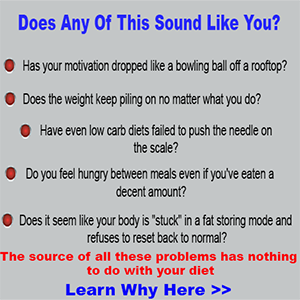The Effects Of Omega-3 Fatty Acids On Brain Function
Omega-3 fatty acids have been shown through research to be effective at improving brain and cognitive function.
In fact, many of those studies have concluded that low blood levels of omega-3 fatty acids could be associated with poor cognitive function, risk for depression, and an increased risk for suicide.
According to one study performed on US military men and women, researchers found that when blood levels of omega-3 fats were low, there was a 62 percent increase in suicide risk.
A new study just released further strengthens the association between low omega-3 fatty acid levels and brain function in military service members.
According to this new study that was published in the journal Nutritional Neuroscience, it could provide evidence that low omega-3 fatty acid levels may be detrimental to brain health in service members that are currently deployed in Iraq.
Omega-3 Fatty Acids and Brain Health
Research has shown that omega-3 fatty acids are important nutrients for the normal development of your brain.
In fact, it has been shown that DHA (one of the omega-3 fats) is plentiful in the gray matter in your brain, which produces neurons that are necessary for everyday brain functioning.
Recently, a study released by the US military, showed that people who had lower omega-3 fatty acids in their blood, were at an increased risk for suicide.
The authors of this study wanted to explore the relationship between low omega-3 fatty acids (DHA and EPA) levels and the role they play in depression, sleep patterns, anxiety, and the neurocognitive performance of service members who are currently deployed in Iraq.
They included service members from two different camps who suffered from mild-to-moderate depression.
Those members were put through a battery of validated psychosocial and neurocognitive tests aimed to evaluate processing speed, complex attention, reaction time, cognitive flexibility, and executive function.
They showed that the mean omega-3 score of the members was 3.5, which could be considered low.
Their data suggested that the low omega-3 fatty acid score had little impact on anxiety, depression, or lack of sleep.
However, they did show that low omega-3 scores were directly associated with cognitive flexibility and executive function – especially when there was a lack of sleep.
When compared to service members with low omega-3 fatty acid levels, the members who had higher plasma omega-3 fatty acid levels showed better scoring on cognitive flexibility and executive functioning.
From their work, they concluded that improving the omega-3 fatty acid levels may improve neurocognitive performance in active duty service members.
Although this research is new, and it still needs to be verified by further studies before the inclusion of omega-3 fatty acids could be considered beneficial for improving overall brain function, this study does further strengthen the argument that omega-3 fatty acids could be extremely beneficial to brain health – especially as it relates to cognitive and executive functioning.
Omega-3 Fatty Acids and Your Health
Omega-3 fatty acids have been shown beneficial in improving eye, brain, heart, and reproductive health.
In many clinical studies, the use of omega-3 fatty acids has shown tremendous promise in the treatment of depression, ADHD in boys, and in some cases of dementia.
Now, according to the results of this study, low omega-3 fatty acid status, in combination with poor sleep quality, could alter your cognitive flexibility and the overall executive functioning in your brain.
Omega-3 rich foods, such as fish, krill, and high-quality supplements such as Krill oil are some easy ways to increase your intake of omega-3 fatty acids, which may improve your brain health.
NEXT: Is This 47 X More Powerful Than Regular Fish OIl? >>
References:
Johnston DT, Deusterm PA, Harris W, MacRae H, Dretsch MN. Red blood cell omega-3 fatty acid level and neurocognitive performance in deployed U.S. Servicemembers. 2012 Published ahead of print. doi: 10.1179/1476830512Y.0000000025.
About Jayson Hunter & Jaylab Pro

Jaylab Pro was founded by Registered Dietitian Jayson Hunter. Jayson has been recognized as one of America's foremost weight loss experts by America's Premier Experts™. He has also been featured in USA Today for this accomplishment. Jayson is also a best-selling author having co-authored multiple books in health & fitness and business growth. Jayson and the Jaylab Pro team are proud to create content that helps improve the lives of millions of people around the world. We hope you enjoy it just as much as others have.
 If you order a JayLabPro SmartShip product or any Combo Package, we will automatically ship you a new supply of the product or products you have ordered every month, starting 30 days after your initial order is shipped, and continuing until you cancel. The credit card you are using today will be billed the lowest available price for those product or products when your order is shipped, but shipping will be FREE. You may log into your customer account or call our customer service department toll-free at 1-888-9GETPRO (1-888-943-8776) between the hours of 8am – 9pm EST Mon-Fri to cancel future shipments, customize the timing of your shipments, or change the credit card used for billing.
If you order a JayLabPro SmartShip product or any Combo Package, we will automatically ship you a new supply of the product or products you have ordered every month, starting 30 days after your initial order is shipped, and continuing until you cancel. The credit card you are using today will be billed the lowest available price for those product or products when your order is shipped, but shipping will be FREE. You may log into your customer account or call our customer service department toll-free at 1-888-9GETPRO (1-888-943-8776) between the hours of 8am – 9pm EST Mon-Fri to cancel future shipments, customize the timing of your shipments, or change the credit card used for billing.










